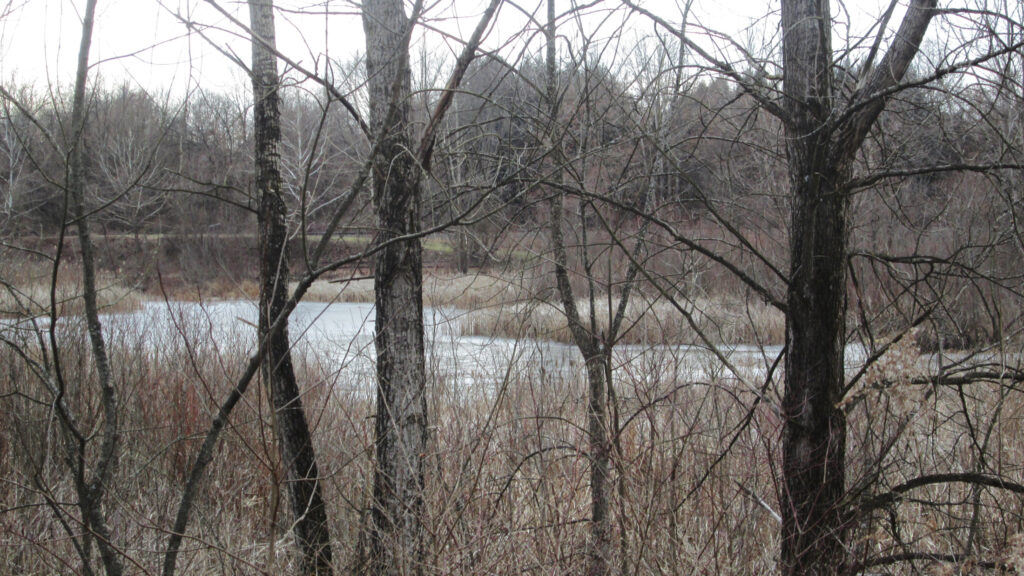
On the second day after the train derailed,
I walked the circumference of the wetlands,
a mere five miles away from where black plumes
of toxic smoke were rising to meet the thick clouds
of the sky. It was a cold day, and colorless.
Whatever birds had been there, scouting
for places to build their nests, to raise their young,
had gone, taking their mating songs with them. And the songs
of the trains were absent, too, the rhythmic clatter and squeal
of iron wheels on the iron tracks that stretch above the pond,
the penetrating notes of their whistles as they barrel across
the weaving country roads half a mile away.
As they stood there in stoic silence, did the trees know?
Did the birds sound an alarm as they took flight?
Was there anything in the wind’s scent, in its whispers,
that hinted that the worst was yet to come?
How could they have known, how could any of us
have known, that while the trains would soon return,
the silence of the living things would go on and on and on.